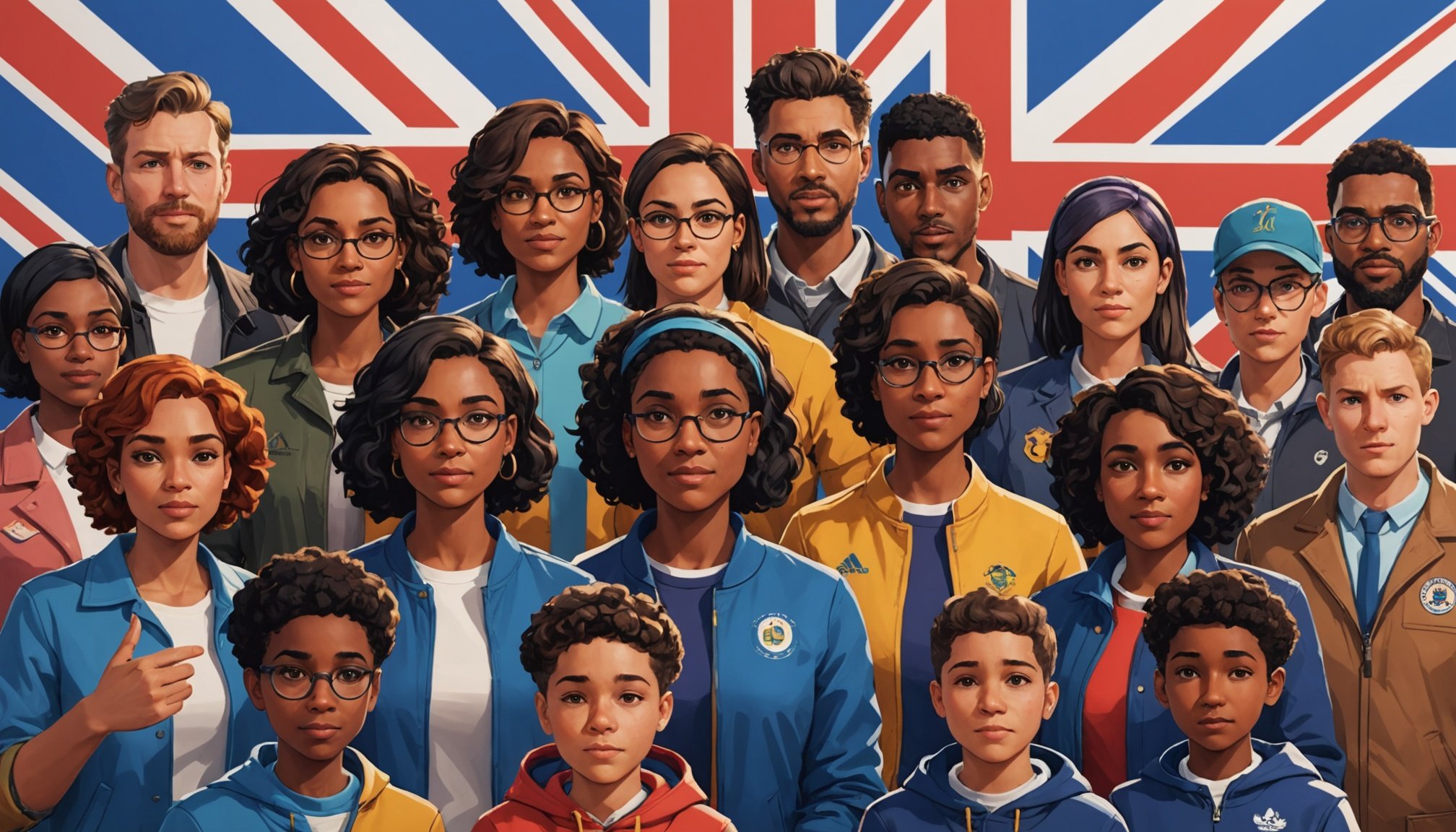UK game industry initiatives advancing diversity and inclusion
The UK gaming sector has launched multiple UK games diversity initiatives to address long-standing gaps in representation. These coordinated programs and partnerships focus on fostering inclusive environments through targeted recruitment, mentorship, and education. One prominent strategy involves collaboration between developers, publishers, and advocacy groups to create sustainable pathways for underrepresented talent.
Inclusion strategies UK gaming prioritize both cultural awareness and structural change. Government bodies play a crucial role, offering funding and policy frameworks that encourage studios to meet set diversity benchmarks. These initiatives often emphasize measurable outcomes, using data to track progress in gender, ethnicity, and disability representation.
Have you seen this : How Has the Evolution of UK Video Games Shaped Cultural Identity?
Organizations within the gaming industry DEI space advocate for transparency and accountability. By establishing clear metrics—such as the proportion of diverse hires and leadership roles—they provide the industry with tangible goals. Reports indicate gradual improvements, highlighting the effectiveness of these collective efforts in shaping a more representative UK gaming workforce.
Representation in UK games: showcasing diverse identities
Representation in UK games has notably advanced, highlighting diversity in game characters across gender, ethnicity, LGBTQ+, and disability spectrums. This shift reflects a growing commitment to crafting inclusive game narratives that resonate with broader audiences.
In parallel : What Makes a Video Game More Addictive Than Others?
Recent UK-developed games have embraced this trend by featuring protagonists and supporting characters who embody authentic, multifaceted identities. Such games go beyond tokenism, offering players meaningful experiences enriched by diverse perspectives. The presence of nuanced stories that explore different cultural backgrounds and life experiences demonstrates a purposeful move toward representation in UK games that mirrors real-world diversity.
Industry trends increasingly favour this approach. Developers are recognising that authentic diversity not only enhances storytelling but also broadens market appeal. By weaving inclusive elements into gameplay and character development, UK studios contribute to a more welcoming environment for players from all walks of life. This momentum signals an important evolution: representation in UK games is no longer an afterthought but a foundational principle guiding design decisions.
Inclusive practices and policies in UK game development
In the UK game industry, embracing inclusive hiring gaming practices is increasingly recognized as essential. Studios are introducing diversity and inclusion policies that focus on recruitment, retention, and cultivating a welcoming culture. These measures help address historic imbalances and create environments where all voices are valued. For example, targeted recruitment campaigns encourage applications from underrepresented groups, ensuring a broader talent pool.
Mentorship and networking programs play a crucial role in career development for diverse professionals. By pairing newcomers with experienced mentors, studios provide guidance that supports long-term growth and helps overcome barriers. Industry events and community initiatives also foster connections vital for progression in a competitive field.
Accessibility extends beyond hiring, influencing workplace design and game development itself. UK game industry policies increasingly mandate accommodations such as flexible working hours and adaptive technologies. Moreover, integrating accessibility features into games ensures that diverse players can enjoy tailored experiences, reflecting a commitment to inclusivity at every level. These actions collectively reinforce the UK’s standing as a global leader in creating welcoming, diverse gaming spaces.
Case studies: leading UK developers championing diversity
Diversity success stories from UK games case studies highlight how studios are embracing inclusivity. Creative Assembly is a standout example, implementing inclusive recruitment and mentorship programs. Their approach ensures a wide range of voices are heard, fostering a workplace where talent from different backgrounds can thrive. This focus on inclusion has led to stronger creative output and better representation within the industry.
Splash Damage demonstrates the value of diverse narrative design teams. By assembling collaborators from varied cultural and social backgrounds, they create richer, more relatable stories that resonate with broader audiences. Their commitment to diversity success stories is evident in the expansive reach and emotional impact of their games.
SpecialEffect addresses a unique aspect of diversity in UK gaming: accessibility. By prioritizing game design that accommodates players with disabilities, they champion inclusivity beyond traditional recruitment or storytelling. This initiative aligns with broader studio diversity initiatives and serves as a powerful example of considering all gamers.
Together, these UK games case studies reveal how studio diversity initiatives not only enrich the creative process but also build a more equitable, innovative industry.
Impact of diversity and inclusion on UK gamers and workforce
Diversity and inclusion are shaping the UK gaming landscape in profound ways. For UK gamers, inclusion enhances representation, allowing players from various backgrounds to see themselves reflected in characters and storylines. This representation fosters stronger community engagement, as diverse narratives resonate with a wider audience, promoting a sense of belonging.
Within the workforce, diversity leads to tangible benefits. Studies show that greater workforce diversity impact includes increased innovation, as different perspectives inspire creative solutions in game development. Companies that prioritize inclusion often experience better employee retention and boosted morale, creating a more collaborative environment.
Industry experts emphasize that embracing inclusion is not merely ethical but strategic. Community leaders stress that benefits of inclusion in games go beyond gameplay improvements; they cultivate a passionate, loyal player base. This virtuous cycle encourages developers to continue pushing for diverse and inclusive content, further enriching the UK gaming ecosystem.
Understanding these dynamics is crucial for those invested in both playing and making games, as the positive impacts of workforce diversity impact ripple across the entire industry, benefiting players and professionals alike.








